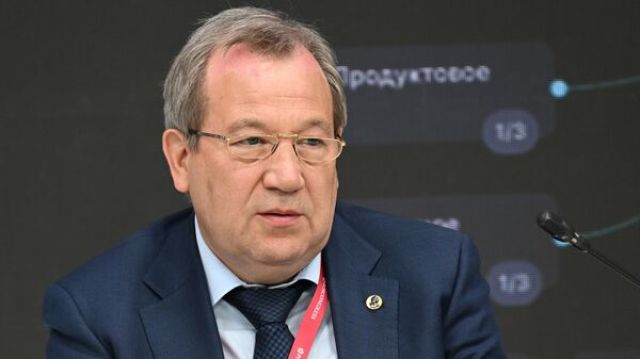Moscow. May 28. INTERFAX - The Russian lunar program will include seven missions, and funding for the program will begin this year, said Gennady Krasnikov, President of the Russian Academy of Sciences (RAS).
"As for the lunar program, it includes seven lunar missions with various scientific objectives. At the first stage of the study, it is supposed to exist with the help of automatic flights," Krasnikov said at a general meeting of RAS members on Wednesday.
According to him, the financing of the program will begin in 2025.
"We have to study the north and south poles, where the largest ice accumulations are found, and take the soil for analysis. We also plan to send lunar rovers to explore the area and prepare for the deployment of a future lunar station. This is a large and very responsible program and, of course, a serious challenge for our academic institutions," he said.
As Krasnikov noted in his speech, the Academy currently has a "holistic, balanced program of fundamental and technological space research" that "will allow it to maintain its leadership position in the top three space powers."
"The proposed projects in the field of astronomy, planetary research, solar-terrestrial physics, and biomedicine will allow achieving the highest scientific results," Krasnikov said.
He clarified that the Spektr-UV project has been prepared in the field of deep space, aimed at creating a space observatory in the ultraviolet range. The Academy is also conducting the Millimetron project to create the world's first 10-meter cooled telescope, whose task will be to "search for water and complex organic compounds, refine cosmological theories on distortions of the spectrum of cosmic microwave background radiation." The Spektr-RG project, as Krasnikov clarified, is necessary to create a new fully autonomous space navigation system, which will also be used to study extreme physical phenomena in the superstrong fields of neutron stars and black holes.
The Venus-D project, as Krasnikov recalled, is aimed at a comprehensive study of Venus, "the search for life in its clouds and on the surface, the study of the atmosphere and climate history in a number of planets Mars, Earth and Venus." The Academy has launched the Resonance and Arka projects in the field of studying solar-terrestrial relations.
The first lunar mission in the modern history of Russia was launched on August 11, 2023. The launch of the Luna-25 automatic interplanetary station was carried out from the Vostochny cosmodrome. The soft landing of the Luna-25 station at the South Pole of the Earth's natural satellite was supposed to take place on August 21, 2023, however, on August 19, the device was lost after colliding with the lunar surface.
On August 11, 2023, Yuri Borisov, then head of Roscosmos, stated that the launch of the Luna-26 mission was scheduled for 2027, Luna-27 for 2028, and the launch of Luna-28 was planned by 2030 or later.
On October 27, 2023, he said that the Russian Federation would study the Moon together with China after the launch of the Luna-26 and Luna-27 spacecraft.
On March 3, 2024, Borisov announced that Russia, together with China, plans to deliver and place a nuclear power plant on the Moon at the turn of 2033-2035.
In June 2021, Russia and China presented a roadmap for the construction of a joint lunar base. In March of the same year, the two countries signed an intergovernmental memorandum of understanding on cooperation in the establishment of the International Lunar Research Station (ISS).

